More Powerrr!
In-House Dyno Tuning
Dream Automotive have partnered with RaceCal to offer a variety of engine calibration (ECU mapping) services to our customers. Dream Automotive choose RaceCal for their 25+ years experience in this sector, as well as their renowned reputation for specialising in Honda vehicles.
Whether you have a road based car and wanted to extract a little more power, a 500bhp+ FK build, a specialist race vehicle or anything in between, using our in-house 4WD Dyno Dynamics rolling road, we can cater for your requirements. We support a variety of ECU's, most notably Hondata, Syvecs, AEM, Haltech, Link ECU as well as some others. General engine mapping, closed loop gearbox control for sequential transmissions, knock control, traction control, launch control and anti-Lag / pops and bangs are all catered for.

Dream 4wd Dyno Dynamics
At Dream we can offer full engine calibration services and diagnostics.

What options are available to me?
Depending on which vehicle you have, there may be multiple options to choose from, some factors to consider are the goals of the build, as well as the budget you are working too. Below are the popular options for the Honda Civic FK2/FK8.
Hondata FlashPro
EcuTek
Syvecs PnP
Book in for mapping!
Let us know your requirements and we'll get you booked in

What can I expect from a mapping session?
Dream Automotive and RaceCal pride themselves on offering an honest, realistic and reliable calibration service.When your car arrives, firstly it will be inspected by one of our trained technicians before then being attached to the dyno. The vehicle will be strapped down safety and securely enabling the calibration to be completed with minimal risk. First a foremost when it comes to dyno power figures, you must remember that a dyno is a tool mainly to help the engine calibration engineer, its not just there to produce a power figure. Having a braked dyno allows the completion of 'Steady State' tuning allowing the engineer to optimise the ignition timing safely whilst monitoring knock levels as well as fuel delivery control. Power and torque figures can be manipulated in numerous ways, you can make the dyno over or under read just by how you strap the car down.Check out our blog post here to see this in more detail. Dream Automotive or RaceCal will never manipulate dyno figures, as summarised above we pride ourselves on a reliable and realistic calibration service.Once the car is on the dyno, the calibration will start, the engines fuelling and ignition timing will be optimised bespoke to your car and setup. VTC/VTEC will also be optimised for best response and torque. Additional features can also be setup on the dyno in a safe and controlled environment. Depending on the cars specification, some cars can also be tuned remotely with Dream Automotive liaising directly with RaceCal for any calibration amendments whilst the car is on the dyno. This service is available for our customers saving you time and money, whilst also still receiving a calibration tailored to your car.
Once the calibration is completed we will supply a power and torque graph, AFR plot as well as boost plot (if applicable).
Preperation
What do I need to do before I come for a mapping session?
Dyno power runs and engine calibration sessions create a similar level of load on the engine that you could expect on a track day. With this in mind, the best course of action to take when preparing for the dyno is to do the same as if you were about to do a track day. Before a track day we would expect you to check fluids are topped up (oil, coolant, fuel etc) and that there are no leaks from the engine or its ancillaries. Furthermore we also recommend checking the condition of your spark plugs and if a manual transmission, a healthy clutch that is not slipping, or will start to slip if expecting a large increase in torque from your current setup. If you require advice on which spark plugs to use and what gap to run, please get in contact with the form below.
Fuel level
we have mentioned fuel level in the fluids section above, however this is a point that is so often forgotten/overlooked. To properly calibrate your engine, we will require a suitable amount of your chosen fuel to complete the job. Calibration can consume anywhere between 20 and ~70 litres depending on the car and how long the dyno session will last depending on the complexity of the setup. Therefore, we would recommend arriving to the dyno with a full tank of fuel. Dream Automotive recommends '99 RON' fuel for your pump fuel map, this would be either Shell V-Power or Tesco Momentum. If these fuels are not available in your geographic location, please contact us with the fuel that you will be using so we are aware. If you are running an Ethanol blend or a specific race fuel, please feel free to contact us to discuss suitable required quantities.
Fluid Leaks
Ensure your engine has no fluid leaks, not only can this be dangerous to your engine on the dyno, a large leak can also damage critical dyno equipment. Dream Automotive reserve the right to invoice customers for any cleaning or damage to calibration equipment caused by a fluid leak.
Known Underlying Problems
Whilst tuning on the dyno isn't going to stress the engine any more than driving at full throttle on the road/track, if your engine is using excess oil, smoking, pushing water out on load, low on compression or generally in poor health; carrying out a dyno power run or calibration session is not advised. Dream Automotive reserve the right to decline a power run or calibration session if we believe the engine is not suitably healthy. If you are unsure we can arrange a health check, including compression/leakdown test before your appointment.



